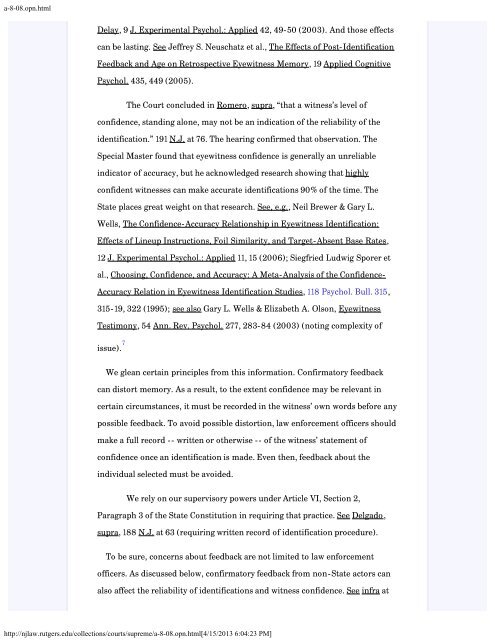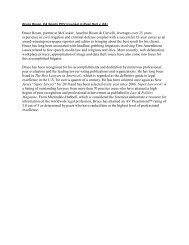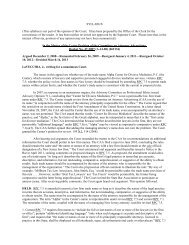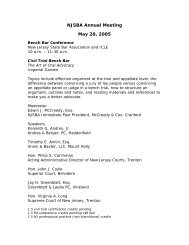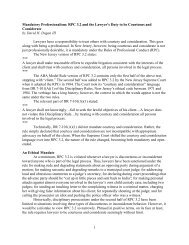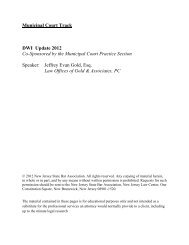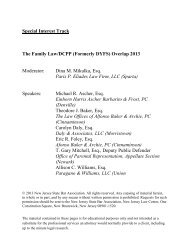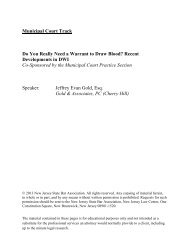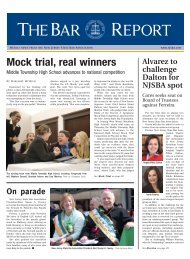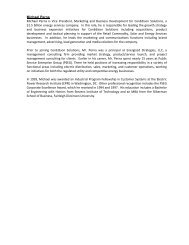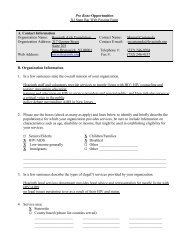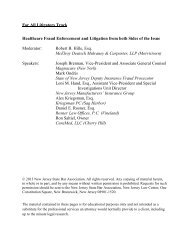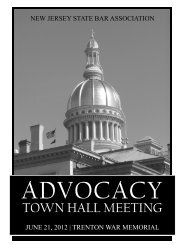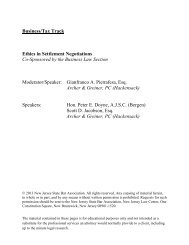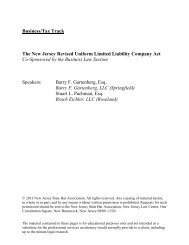State v. Henderson and the New Model Jury Charges - New Jersey ...
State v. Henderson and the New Model Jury Charges - New Jersey ...
State v. Henderson and the New Model Jury Charges - New Jersey ...
Create successful ePaper yourself
Turn your PDF publications into a flip-book with our unique Google optimized e-Paper software.
a-8-08.opn.html<br />
Delay, 9 J. Experimental Psychol.: Applied 42, 49-50 (2003). And those effects<br />
can be lasting. See Jeffrey S. Neuschatz et al., The Effects of Post-Identification<br />
Feedback <strong>and</strong> Age on Retrospective Eyewitness Memory, 19 Applied Cognitive<br />
Psychol. 435, 449 (2005).<br />
The Court concluded in Romero, supra, “that a witness’s level of<br />
confidence, st<strong>and</strong>ing alone, may not be an indication of <strong>the</strong> reliability of <strong>the</strong><br />
identification.” 191 N.J. at 76. The hearing confirmed that observation. The<br />
Special Master found that eyewitness confidence is generally an unreliable<br />
indicator of accuracy, but he acknowledged research showing that highly<br />
confident witnesses can make accurate identifications 90% of <strong>the</strong> time. The<br />
<strong>State</strong> places great weight on that research. See, e.g., Neil Brewer & Gary L.<br />
Wells, The Confidence-Accuracy Relationship in Eyewitness Identification:<br />
Effects of Lineup Instructions, Foil Similarity, <strong>and</strong> Target-Absent Base Rates,<br />
12 J. Experimental Psychol.: Applied 11, 15 (2006); Siegfried Ludwig Sporer et<br />
al., Choosing, Confidence, <strong>and</strong> Accuracy: A Meta-Analysis of <strong>the</strong> Confidence-<br />
Accuracy Relation in Eyewitness Identification Studies, 118 Psychol. Bull. 315,<br />
315-19, 322 (1995); see also Gary L. Wells & Elizabeth A. Olson, Eyewitness<br />
Testimony, 54 Ann. Rev. Psychol. 277, 283-84 (2003) (noting complexity of<br />
issue). 7<br />
We glean certain principles from this information. Confirmatory feedback<br />
can distort memory. As a result, to <strong>the</strong> extent confidence may be relevant in<br />
certain circumstances, it must be recorded in <strong>the</strong> witness’ own words before any<br />
possible feedback. To avoid possible distortion, law enforcement officers should<br />
make a full record -- written or o<strong>the</strong>rwise -- of <strong>the</strong> witness’ statement of<br />
confidence once an identification is made. Even <strong>the</strong>n, feedback about <strong>the</strong><br />
individual selected must be avoided.<br />
We rely on our supervisory powers under Article VI, Section 2,<br />
Paragraph 3 of <strong>the</strong> <strong>State</strong> Constitution in requiring that practice. See Delgado,<br />
supra, 188 N.J. at 63 (requiring written record of identification procedure).<br />
To be sure, concerns about feedback are not limited to law enforcement<br />
officers. As discussed below, confirmatory feedback from non-<strong>State</strong> actors can<br />
also affect <strong>the</strong> reliability of identifications <strong>and</strong> witness confidence. See infra at<br />
http://njlaw.rutgers.edu/collections/courts/supreme/a-8-08.opn.html[4/15/2013 6:04:23 PM]


